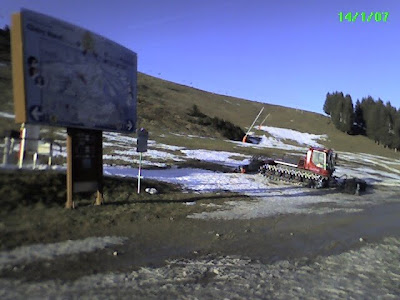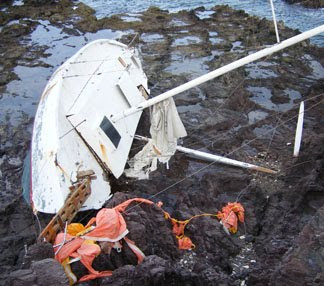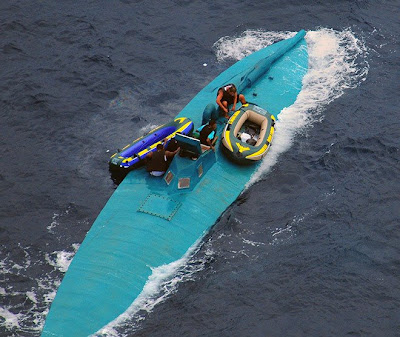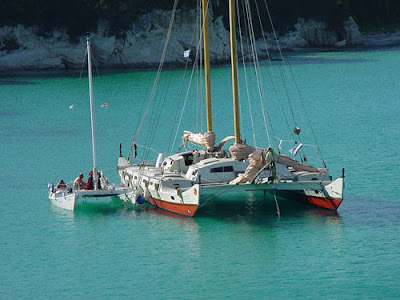This is a repost from an another forum, in response to a dear friend who called BS on me. I was taking the position that overpopulation is a central, but often unspoken issue in the context of sustainability, economic justice, limits to growth, etc. And she replied, "Wait a minute, how can you say that when you're having a baby any week now?!?!"
Disclaimer: I say "I" and not "WE" in the post above cuz this is how I feel about it. Let's see if Sarah has a follow up post...

(As a quick aside, we've nicknamed our soon-to-be baby "Tree Frog" because we know her primarily by her kicks and jumps, and because her legs and butt seem about as long and boney as picture above)
So here, dear friends, are the Top 10 Reasons I'm Having a Kid Even Though the World is Going to Shit:

10 - Because I want to. I'm an American damn it! It's my God-given right to do what I want whenever I want. You're not the boss of me and I don't have to tell you why. If I ever feel twinges of guilt in the middle of the night for the way I live, I can always fall back on my fancy education or hire a shrink or a life coach to help me muster rationalizations to justify my actions. Just joking. (An alternate #10 for a lot of folks might be "because the condom broke" or "because I live in a Red State where we learned that storks bring babies", but Sarah and I were actually trying.)

9 - Because I'm curious and in love. When all is said an done I want to have a kid because I have a deep longing to see what a tiny human being comprised of half me and half the love of my life will be like. I literally can't wait to meet her, take care of her, teach her, learn from her, love her.

8 - Because my parents did. And their parents did. And their parent did... It's a tautology to point out that all of us were born to people who consciously or otherwise ended up as parents -- but still, it's pretty cool. Each of our matrilinear mitochondrial DNA stretches back in an unbroken lineage that started with the first single celled mother of all life. I'm not saying that the purpose of human life should be procreation, and I'm DEFINITELY not saying that the only purpose of procreation should be creating life. (that wouldn't be fun) But, I'm saying that we're wired such that the instinct to procreate and therefore create new life as a frequent side effect is incredibly deep and primal. Capitalize the "L" in Life and it approaches religion for me... If this all sounds like heteronormative biological essentialism run amok, let me say that recent evolutionary studies in "community selection" seem to confirm that it literally does take a village to raise a child. There are many ways to serve nascent Life; parenthood is just one... The world needs aunts and uncles and teachers and mentors and role models. And yes, we'll be calling on all of you loved ones to fill those roles...

7 - Because kids don't know any better. I was just listening to a public radio show with people telling their childhood stories about growing up in the Depression. The common theme was that it was a fun time to be a kid: lots of family/neighborhood togetherness, simple games & activities, etc. Kids that grow up during crises or wars always seem to find way to enjoy life and have fun. When I was in middle school, I was on a school trip to the parliament buildings in Quebec City when an ex-soldier burst into the room next door with a machine gun and started killing people. In retrospect, it seems pretty scary. But at the time, we were in the next room, so heard shots but didn't see any blood spatter or dead bodies, didn't really believe the guy would kill us, and it all just seemed like a cool adventure. I remember hiding under a table and really wishing I was hiding under the same table as this girl I had a crush on. I was listening to a neuropsychologist on the radio the other day who categorized stresses as either Positive, Tolerable, or Toxic. The first category are normal emotional growing pains. The second category are major life traumas, but which can be overcome with good family and community support. The third category are deep traumas like abuse, neglect, etc. What stuck me was that the researcher used hurricane Katrina as an example of a "Tolerable Trauma." I was heartened, because I think most of the problems our children's generation will face will similarly fall within a tolerable range. Our kids will adapt to the unfolding post-peak-oil & climate change world and will have challenges, triumphs, loves, losses, depressions and exhaltations just like any other generation.

6 - Because it will be a wild ride. Why deny the next generation ringside seats to the greatest show on Earth: the collapse of postmodern global capitalist civilization? The next few decades will be fascinating!

5 - Because limits to growth are soft not hard limits. The population of humans this gorgeous little planet can support is not a number, but a spectrum of numbers. On one side of the scale, a pristine Earth ecosystem with a "leave no trace" standard of nomadic human civilization would probably allow a human population in the high hundreds-of-thousands to low-single-digit millions. A sustainable Earth ecosystem with decentralized agrarian societies based on permaculture principles could probably support a human population in the hundreds of millions. If everyone lived the way North Americans currently do, the earth could probably support about one billion people. With two-thirds of the Earth's population living on two buck sa day with a lifestyle resembling a scene from a Hieronymus Bosch painting, we've proven we can support high single digit billions. If we choose to transform our planet into "Factory Farm Earth (tm)", exploiting every photon of sunlight, every drop of water, every speck of ore, eliminating in the process every "competing" species, we can probably support many tens of billions of people. Note that we're currently on trajectory for the final and most extreme scenario. Good times.

4 - Because human timescales are different than geological, civilizational, or even historical timescales. The problem I see with dismissing peak-oil or climate-change believers as "doomers" or "neo-millenialists" is: it's like the proverbial wheezing, hard-drinking, 400-pound, 4-pack-a-day-smoker, bacon-double-cheeseburger eating, stunt-motorcycle riding, chainsaw juggling, shark wrestling, russian-roulette playing guy who says to his doctor's repeated warnings, "Well, this lifestyle hasn't killed me YET, so I don't think it ever will..." When religious leaders tell me the End is Nigh, I blow them off. When scientists tell me so, I listen. The heuristic "this is the way things are; therefore this is the way things will always be" is one of humanity's most odious varieties of stupid. As many people point out, people have been having these end-times debates for a long time... but only a long time in human terms. Climate change is happening in a geological blink of an eye. But in human history, uncertainty of plus-or-minus a generation or two means that my kids' might be relatively unaffected by the unravelling future, and MAY not be part of the generation to be left without a chair when the music stops. Maybe even their kids?
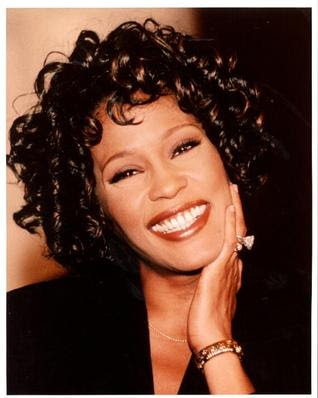
3 - Because kids make us think differently about our lives and our place in the world. You really can't argue with Whitney Houston that "children are the future." Without some sense of responsibility for the legacy of coming generations of human and non-human life, I believe people on average would be LESS eco-correct, MORE hedonistic and self-indulgant. I mean, why turn down the thermostat, carry around goofy looking water bottles, carpool, etc. etc. if my life, right now, is all that matters?

2 - Because maybe our kids can fix it. I've been watching the bailout and the futility of trying to sustain the unsustainable, and at this point I'm not even sure what "fix it" means any more. Perhaps "heal it" is a better phrase, since mechanistic rather than organic thinking seems complicit in this epic mess. Maybe we've passed the point of no return, but maybe we haven't. If anyone can do it, our kids can.

1 - Because I'm an optimist. No, really. Look, I think a lot of people (and frankly a lot of people especially in the sustainability movement) don't understand the difference between thinking and feeling. I THINK (in simplistic terms) that the world is going to hell in a handbasket (for all the usual reason: peak oil, climate change, economic meltdown, yada yada yada.) But I FEEL challenged, curious, engaged, and even cheerful about the coming changes. I don't feel postive for any particular REASON (because then it would be thinking, not feeling...) but because the basic orientation of my personality is optimistic (underneath the crustiness.) To recap: what my rational thought leads me to believe will happen (or not happen) in the future is not, I repeat, not what determines my place on the optimist-pessimist spectrum. The attitudes, feelings, and most importantly ACTIONS with which I meet the future ARE. I'm often accused of being a pessimist, but like Jay (a sailing peak-oiler friend of ours who's now homesteading in Hawaii) says "Pessimists don't plant trees." I think that goes double for raising little humans...




